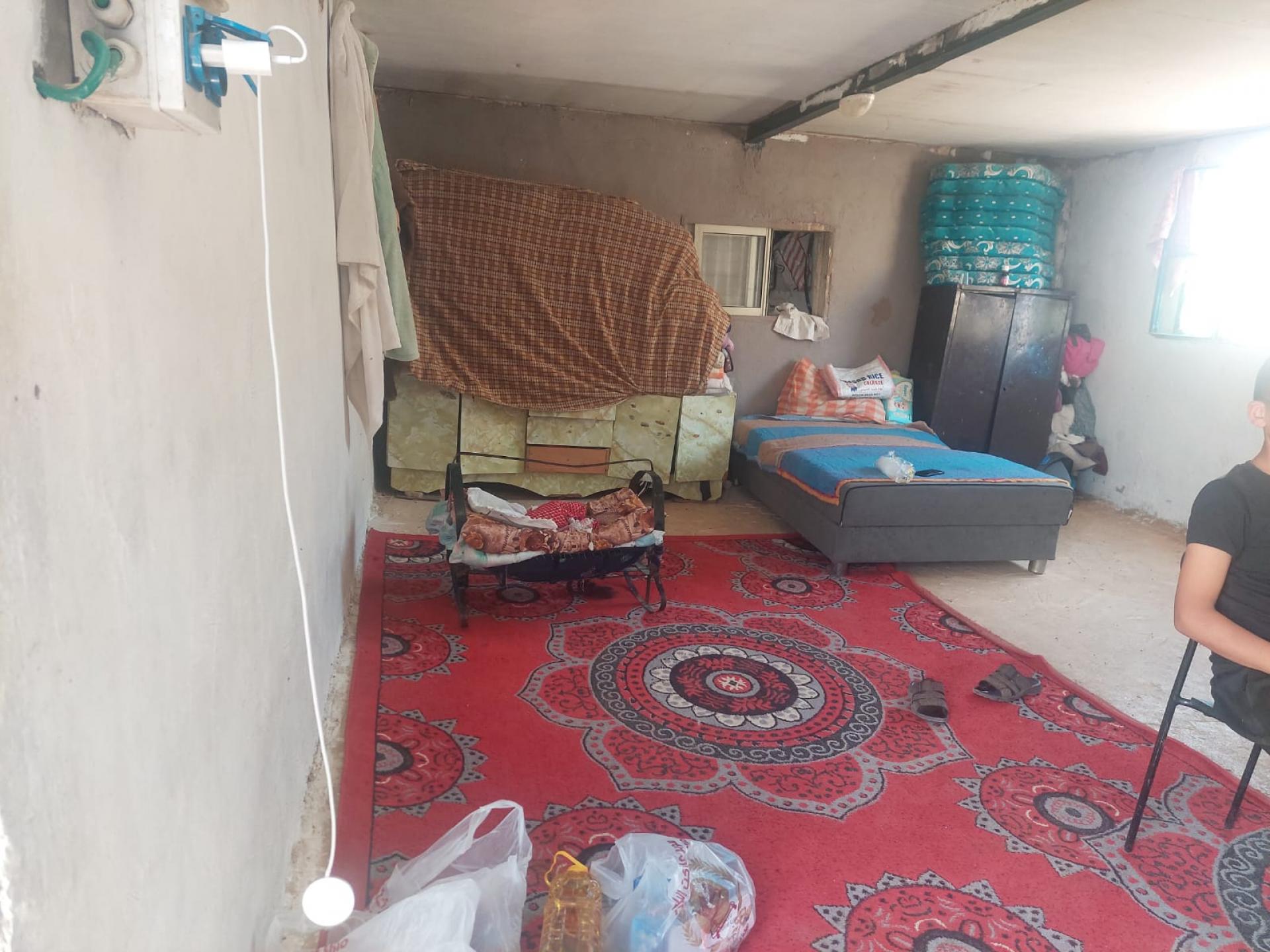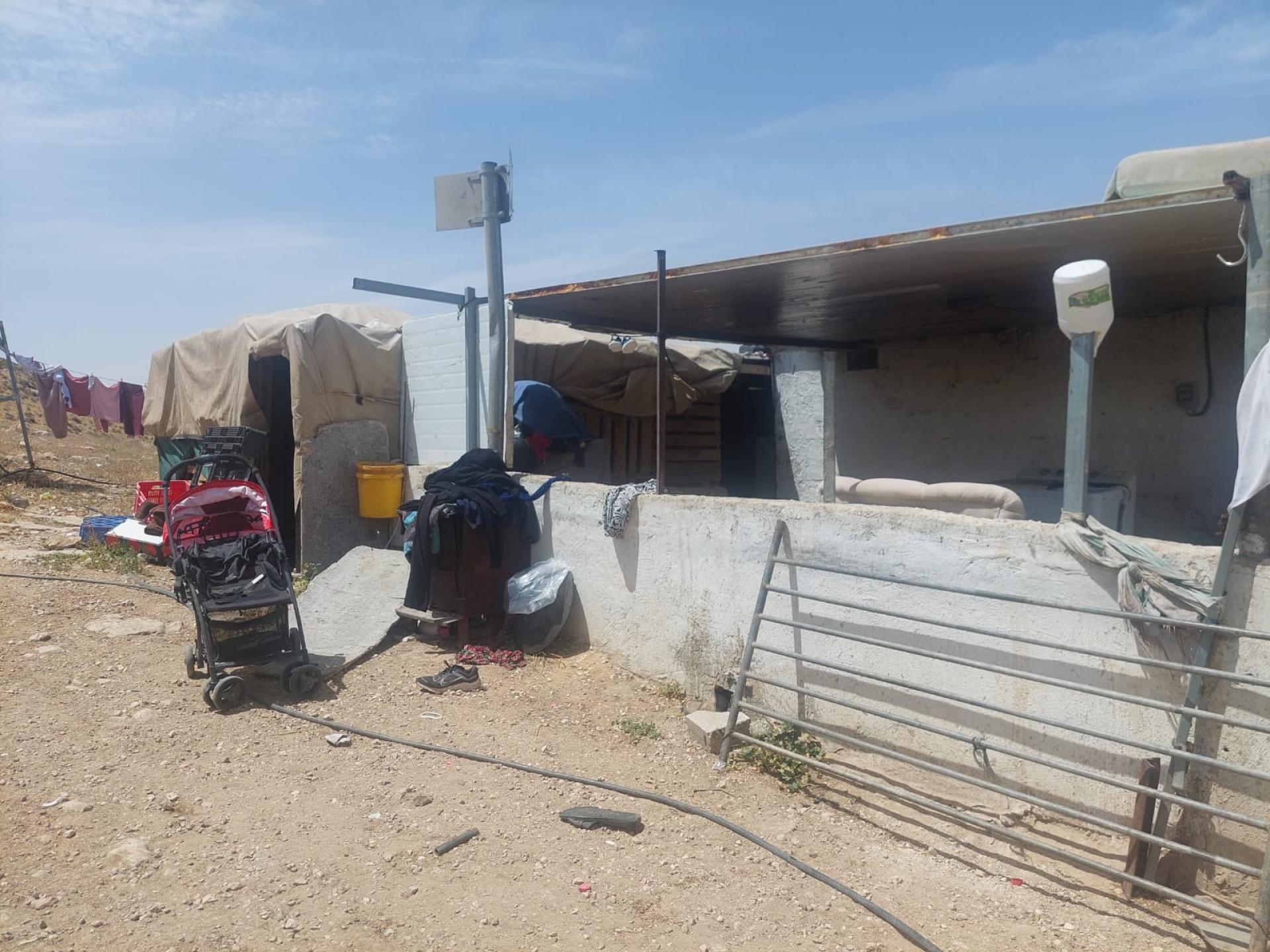Rahwa - settlers limit the grazing area
We drove again with the 4×4 as a normal car is unable to reach people to whom all the normative roads are blocked. We went to a small village called Rahwa.
Thanks to your donations we bought them basic food products. And we drove in the wadi behind the Tene Omarim settlement. There are several families in the wadi. This time we visited the Abu Sharekh family. They are surrounded by settlements that are approximately 10 years old. The Avraham farm is on one hill and there is a settler named Shabtai. Further down the ridge is the Mor farm, where the settlers Aviad and Shlomo, probably a father and son, live. The Palestinian family says that they, the family, have lived here for over 70 years and until 7/10 they their lives were relatively normal. Now they are not allowed to graze on their land that connects the road between Meitar and Tene Omarim, which continues to Tene Omarim. The son says that yesterday his car was confiscated, but they cannot buy a proper car. Many people do travel in cars which are not roadworthy but do not have an option. In August they have a court case at "Ofer".
We are sitting in a room that is part of a building that received a demolition order a month ago. Although the demolition date has passed, the building still stands. In general, it is hard to see the conditions they live in, both near the hideously filthy Beer Sheva stream and near the settlers on the hills.
"Pastorally" or so it would seem. A., the father of the family, says that the settlers come in uniform. He recognizes some of them, some are masked and chase the Palestinians away until they are at least 200 meters away from the road. They come in a van, 3-4 people and drive them away.
He also has a plot of wheat close to the road but due to the lack of rain the wheat is not high enough and it is not worth it for him to even harvest it. He says that yesterday the settlers tore the pipe he had installed to drain water from his cistern. This vandalism also repeats itself and he goes back and fixes it so that the water he draws from the well on the hill reaches him. Ibtisam (the name means smile) says that they were born here and first lived in the caves next to them, many years before Tene Omarim was established in 1983.
M. tells us that it is good that we come, because when the settlers see that people come to them to visit and support them, the settlers realize that the Palestinians do not stand alone and then bother them less. When we left, she asks that we visit them again.
In the pictures you can see how they live, the settlements on the hills and the polluted Nahal Beer Sheva that they live next to.


